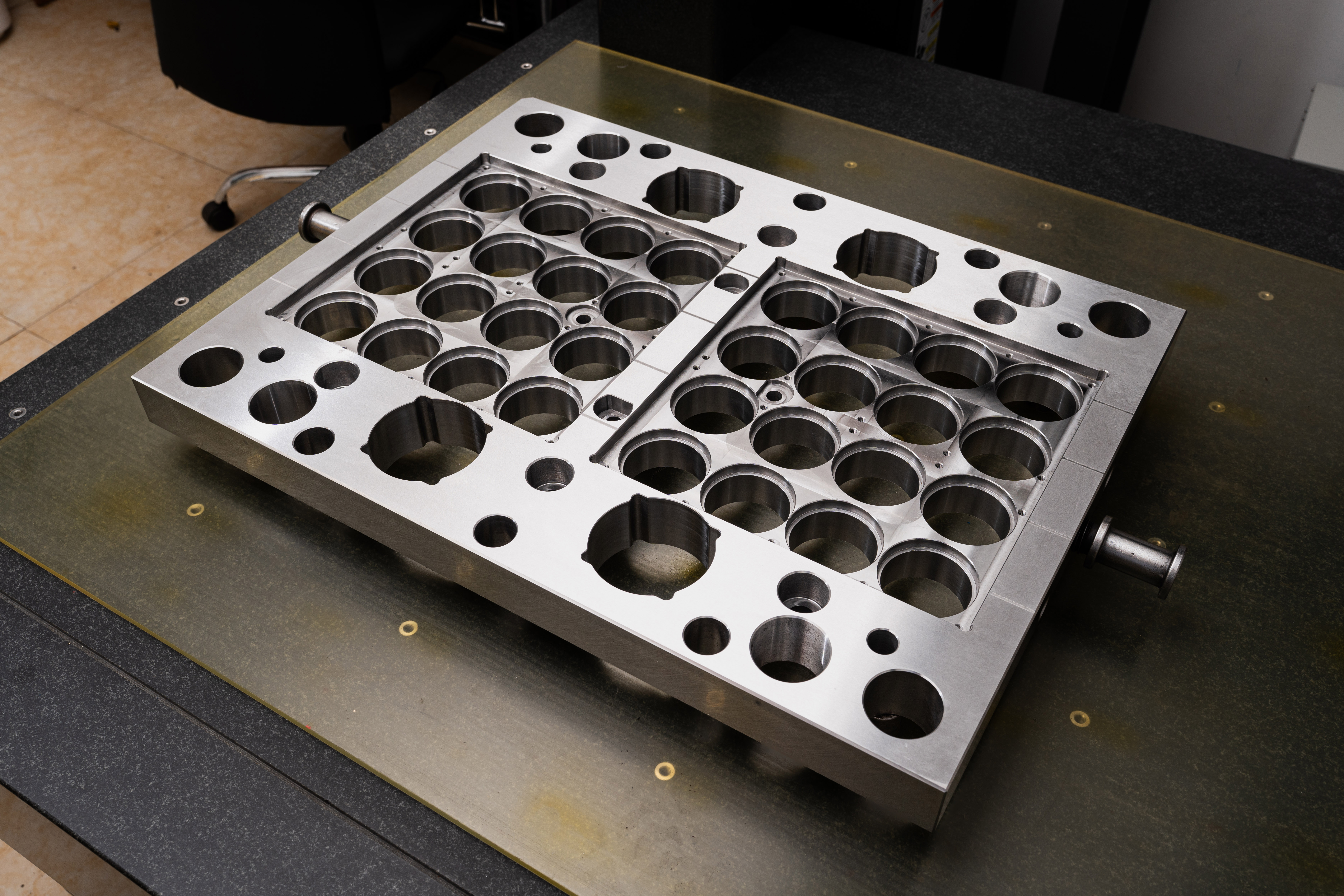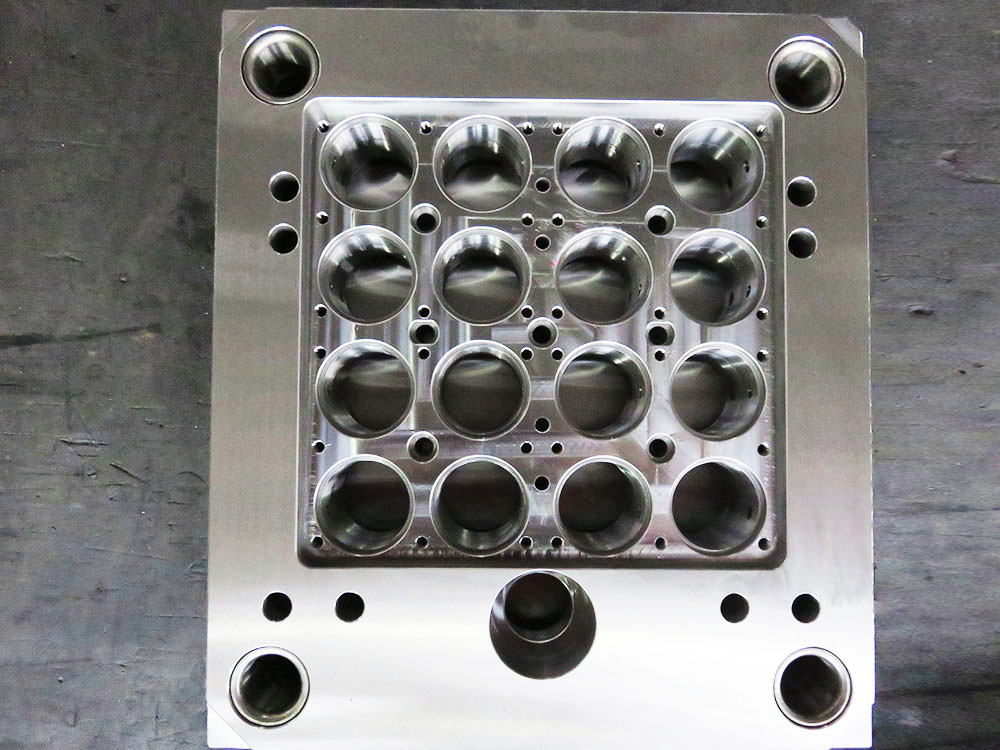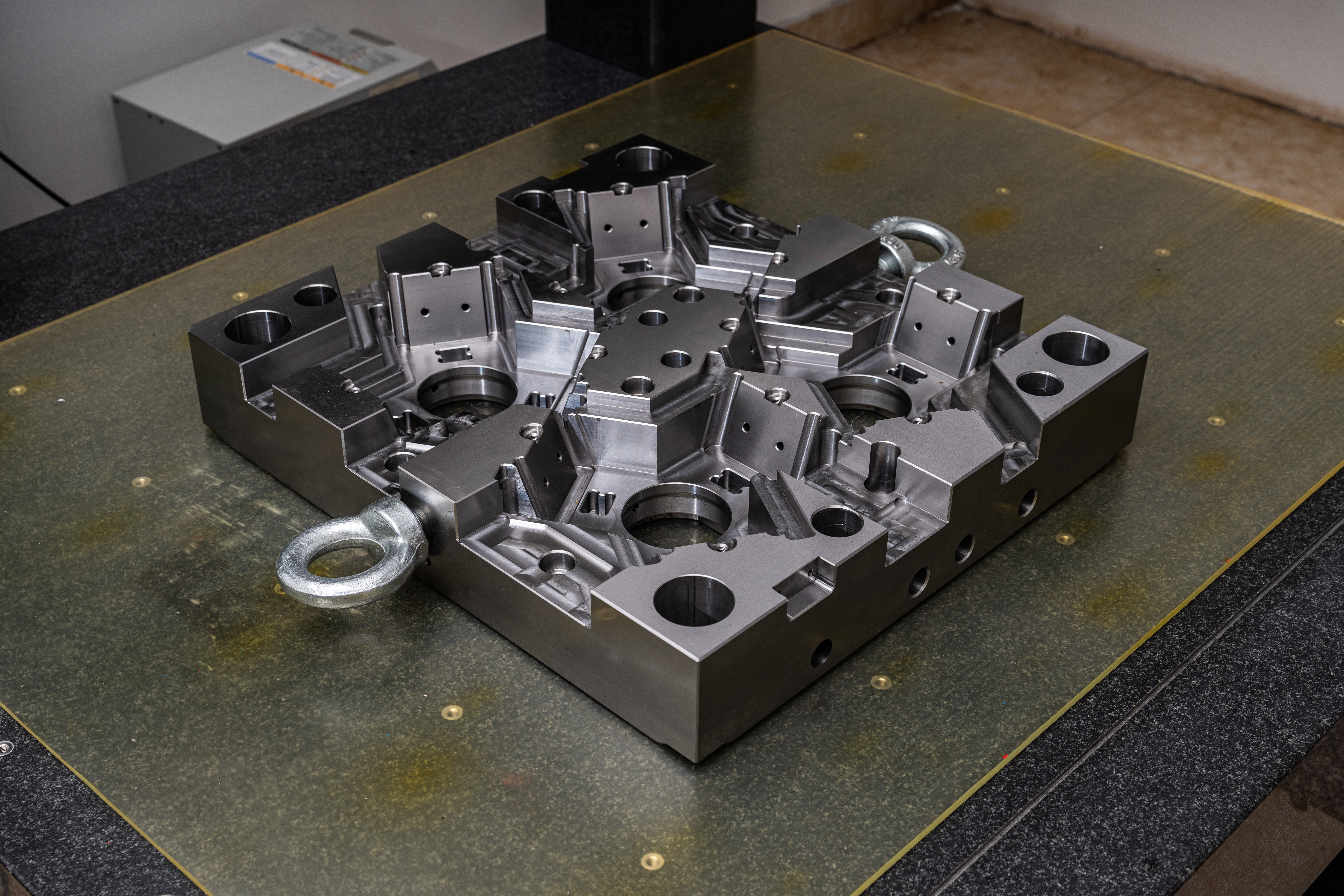Steel:
Steel is the most widely used material in mold base construction due to its excellent mechanical properties, high hardness, and superior resistance to wear and corrosion. The most commonly used steel grades include P20, 718, and 420. These grades offer a good balance between hardness, toughness, and thermal conductivity, making them suitable for a wide range of mold base applications.
Aluminum:
Aluminum is also used in mold base construction, especially for low-volume production or prototype molds. Aluminum offers advantages such as lightweight, excellent thermal conductivity, and good resistance to corrosion. However, it is not as durable as steel and may not be suitable for high-volume production or molds subjected to high pressures and temperatures.
Tool Steel:
Tool steel is a type of high-carbon steel specifically designed for toolmaking applications. It offers excellent hardness, wear resistance, and toughness, making it ideal for mold base construction. Common tool steel grades used in mold base manufacturing include D2, H13, and S7. These grades are known for their high heat resistance, which allows them to withstand the demands of high-temperature molding processes.
Pre-hardened Steel:
Pre-hardened steel is a type of steel that has been heat-treated to achieve a specific hardness level. It eliminates the need for additional hardening processes, saving time and cost during mold base manufacturing. Pre-hardened steel grades such as 4140 and 4130 are often used in mold base construction due to their excellent machinability and good dimensional stability.
Plastic:
For certain applications, plastic materials can be used in mold base construction. Thermosetting plastics, such as phenolic resins, offer good electrical insulation properties and resistance to heat and chemicals. Thermoplastic materials, such as nylon and polypropylene, can also be used, especially in cases where weight reduction is a priority.
Copper and Brass:
Copper and brass are occasionally used in mold base construction, particularly for applications requiring good thermal conductivity and corrosion resistance. These materials also offer excellent electrical conductivity, making them suitable for molds used in electrical component manufacturing.
In conclusion, a standard mold base framework is typically made from steel, aluminum, tool steel, pre-hardened steel, plastic, or copper/brass, depending on the specific requirements of the mold and its intended application. Each material has its advantages and limitations, and the choice of material will depend on factors such as cost, durability, thermal conductivity, and corrosion resistance.



